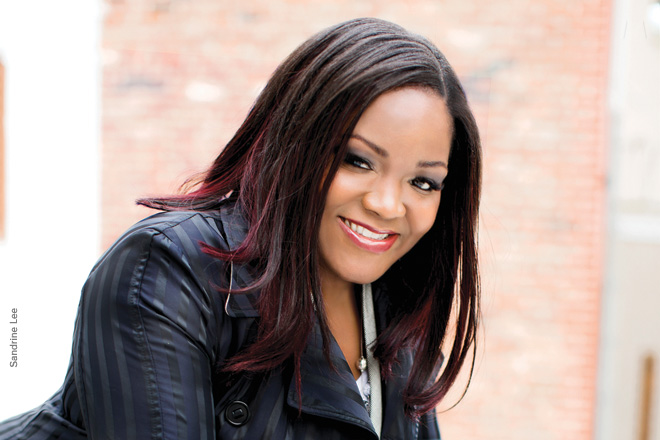SHEMEKIA COPELAND
Belief in the power of song drives this vocalist’s musical mission
Shemekia Copeland sits in her hotel room in Harlem, counting down the minutes until she begins a spate of interviews to discuss her new album, 33 1/3. Her husky voice betrays a bit of anxiety knowing that the public is about to hear her latest. “I’m sitting here thinking ‘Wow! My album is out today.’ And I’m in Harlem, my old stomping ground.”
Since she was a young girl, singing at Harlem’s famed Cotton Club with her father, blues guitar legend Johnny Clyde Copeland, Shemekia’s been on a musical mission. That only intensified when she was 15 and her dad’s health wavered. If anything, his illness and death intensified her desire to carry on his legacy. “I’m not aspiring to become rich, to become a millionaire,” says Copeland, 33, whose high-profile performances have included singing at the White House. “I’m aspiring to become a legend. That is more important to me than flashy success. I am here for the long haul. You don’t get into this genre to become a big, rich millionaire. You get into it for the love of music. I’ve always felt that way since I was a baby. And these songs are my babies.”
Although Copeland writes, she doesn’t consider herself a songwriter. But she takes pride selecting the best songs. The lead track on 33 1/3, “Lemon Pie,” in which Copeland’s vocals drip with sorrow over the plight of the working poor, was written by her long-time manager John Hahn and producer/guitarist Oliver Wood of the famed Wood Brothers. It strikes such a personal chord in Copeland that she recorded her vocals in one take. “I’ve known John Hahn since I was 8,” she says. “We talk every day—about how musicians are one gig away from poverty, people in regular jobs are one paycheck away from poverty. It’s so sad that our ancestors built this country on their backs for the American dream and now we’re on a downward spiral.”
What sets Copeland’s music apart is that the 11 songs on the album detail her views on elitism, poverty, abuse, violence and religion. “There are so many artists who say ‘I’ve got to have a radio song. I’ve got to win this award,’” she says. “I never think about songs that way. I am trying to give a message about faith and hard work and values. I’m trying to do that with the music I love. I want to make music that might change somebody’s life. I want to make a difference.”
–Nancy Dunham




comment closed